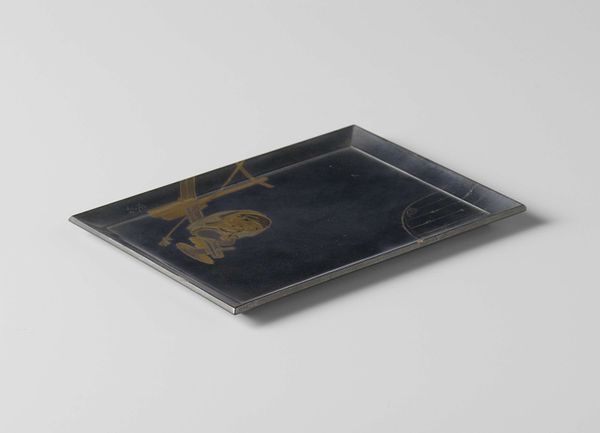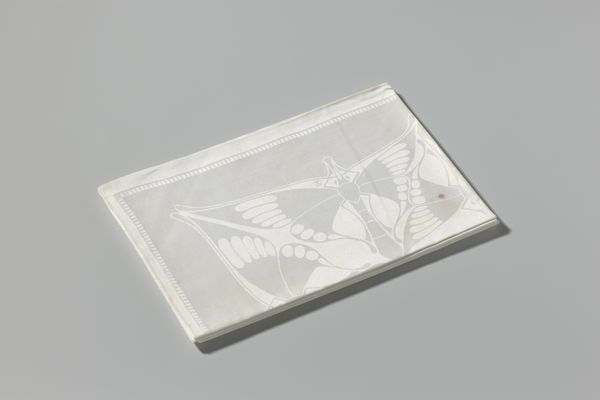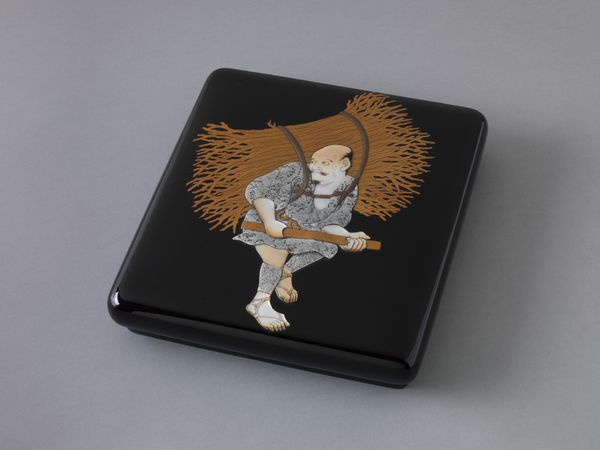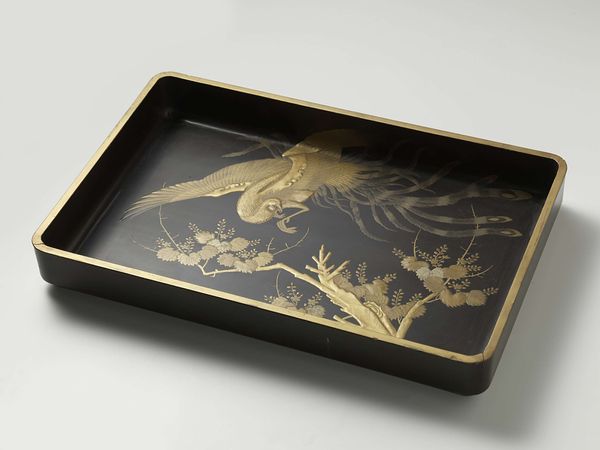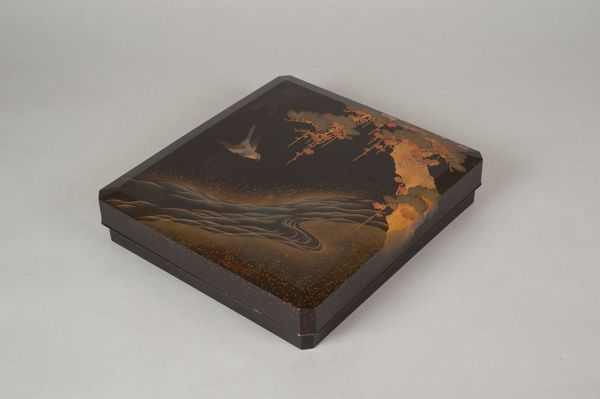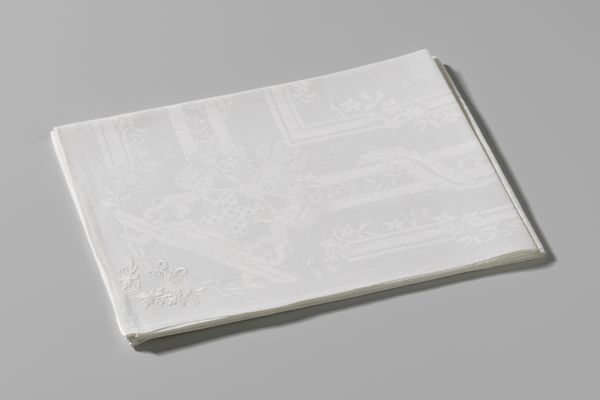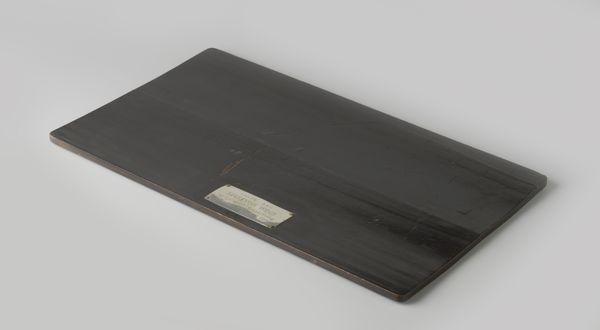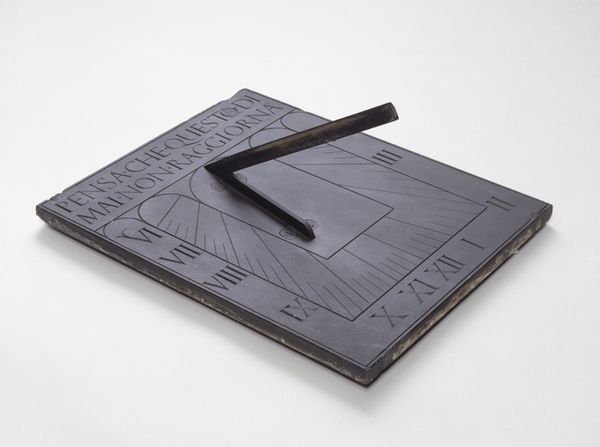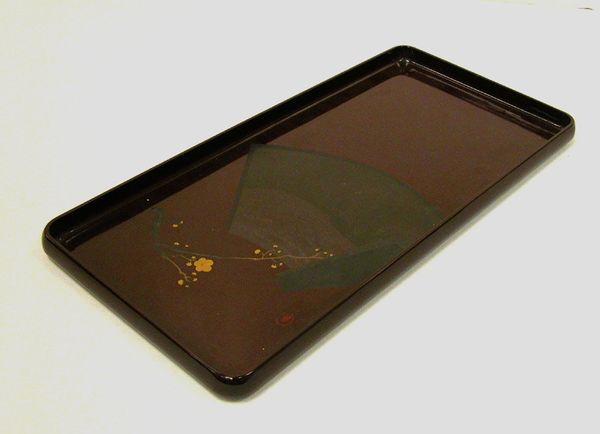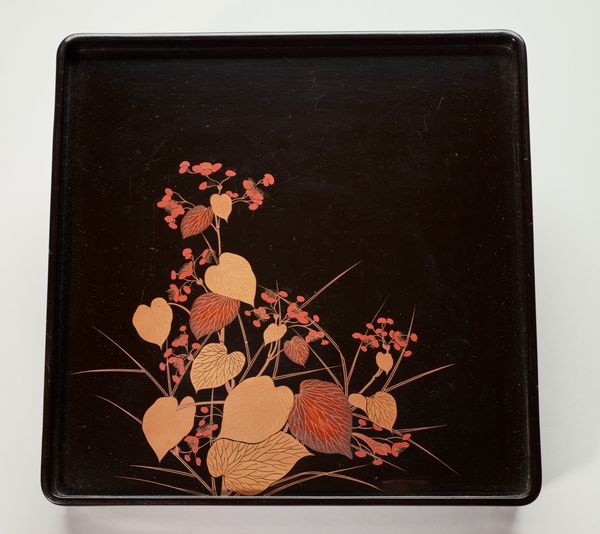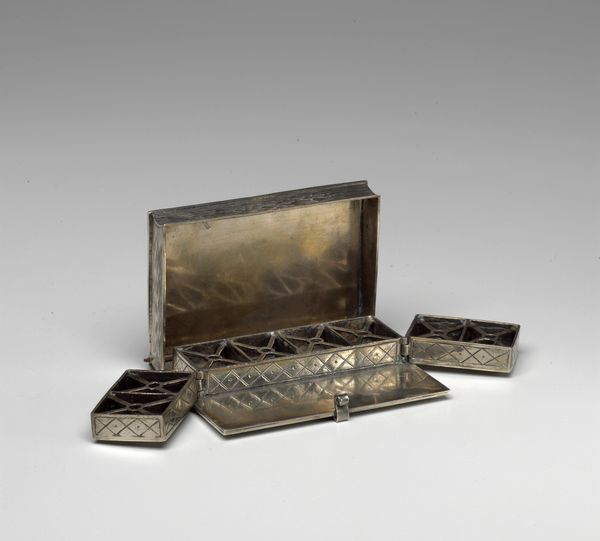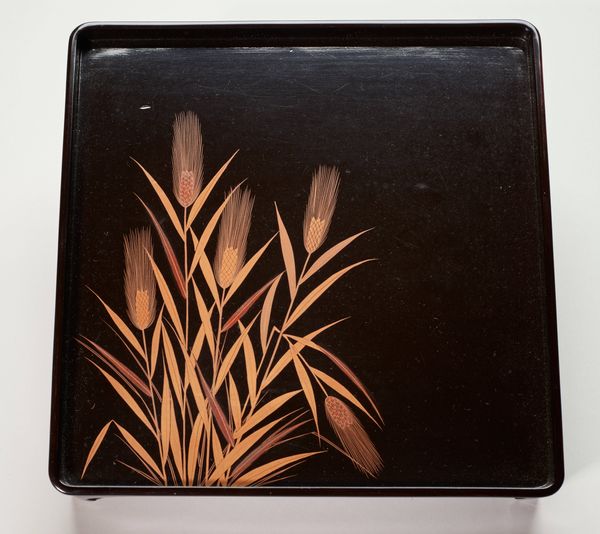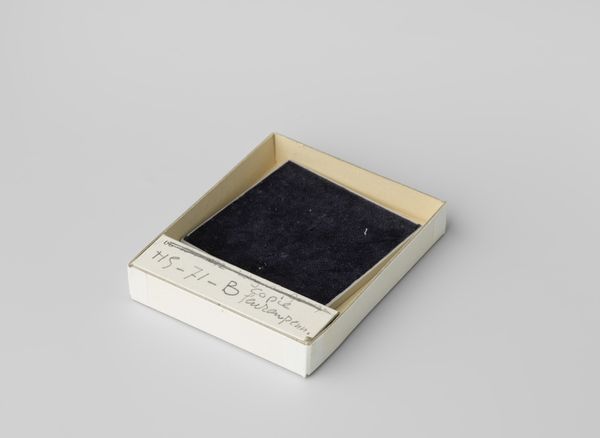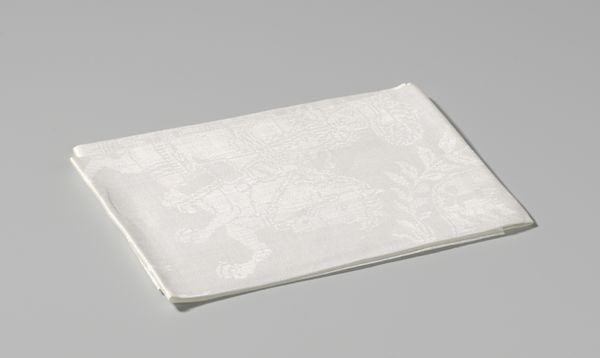
Tray with rice stalks and a grasshopper on a tea kettle 1881 - 1889
0:00
0:00
Dimensions: L. 14 3/4 in. (37.5 cm)
Copyright: Public Domain
Curator: At the Metropolitan Museum, we’re looking at a striking yet humble object: a tray by Shibata Zeshin. Made between 1881 and 1889, its full title is "Tray with rice stalks and a grasshopper on a tea kettle," tempera and lacquer on wood. Editor: Oh, this is lovely! It feels both grounded and whimsical. The dark, almost brooding background really makes that burst of orange pop, like a miniature sunrise. And that golden, thread-like grasshopper... It's incredibly delicate. Curator: Yes, the darkness has layers. In the context of ukiyo-e traditions, dark grounds often represent a melancholic atmosphere, or even point toward transient worlds and "floating life". It is a sophisticated allusion, given the commonplace subject matter. Editor: It’s interesting you mention the feeling of transience, it gives the image a little more depth than you might expect. So we're dealing with mortality and the fleeting nature of things... all on a tea tray. Which, ironically, you’d think of as such a sturdy, everyday object. Curator: Precisely. Even the motifs tie into such feelings. Rice stalks, though representative of harvest and bounty, are very short lived. And grasshoppers? Traditionally, they symbolize autumn, another moment of ending. They remind the viewer to seize opportunity while it lasts. Editor: I love the almost naive depiction of the tea kettle, then, that burst of orange in the upper right is, on its own, kind of cheerful. Against the symbolic background of loss, the whole tableau strikes me as really dynamic: a celebration of small comforts amidst big concerns. The way the orange seems to glow feels particularly vital. Curator: Zeshin masterfully orchestrates the visual elements and their historical references, inviting viewers to interpret layers of meaning in what could be an everyday image. Editor: It reminds you that even daily life has deeper meaning—memento mori, and enjoy the small stuff while it's here. It's very much a kind of beautiful mindfulness practice in visual form. Well, now I’m off to make some tea.
Comments
No comments
Be the first to comment and join the conversation on the ultimate creative platform.
